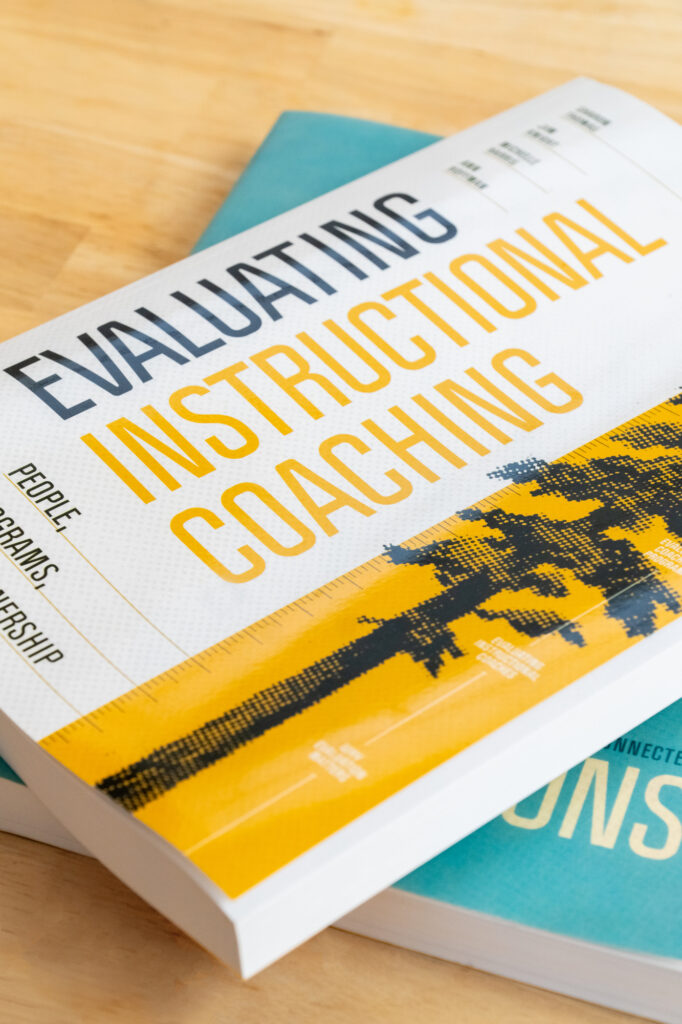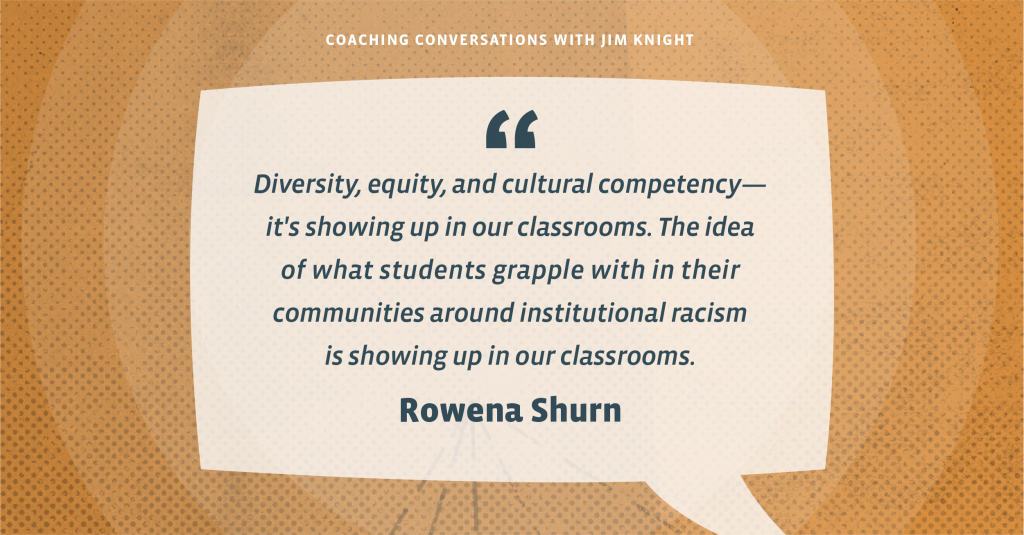
During the weeks leading up to ICG’s 2020 Teaching Learning Coaching Conference, I had a chance to discuss instructional coaching through a Diversity, Equity, and Cultural Competency (DECC) lens with Rowena Shurn, the Senior Policy Analyst with the National Education Association (NEA), along with her colleagues Andrea Robinson-Tejada, Sandie Skordalos, and Senetria Blocker, who make up a team creating DECC courses for NEA.
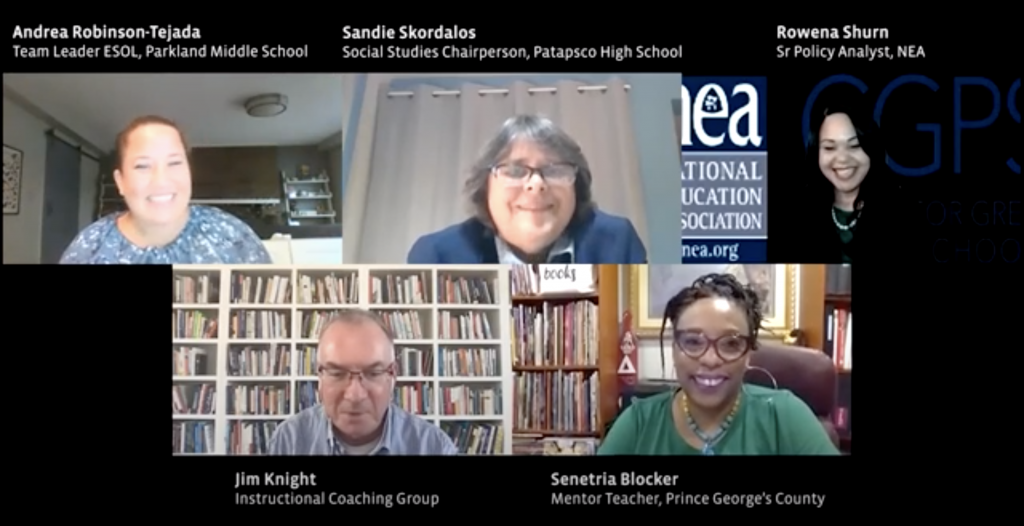
While NEA has been doing DECC work for decades, a groundbreaking business item at the 2015 NEA representative assembly acknowledged the reality and existence of institutional racism for the first time. This team of teacher leaders, led by Rowena, aims to move change through policy or legislation by focusing on teaching and learning. Their work creating a space to explore these issues has opened doors for leaders to foster a culturally responsive environment for all students and educators.
As we all work toward a more just and equitable future for all students and educators, I thought it would be helpful to create an ongoing glossary or vocabulary of terms used in discussions around racism, equity, and cultural competency. I asked Rowena and her team to help define some of these terms during our conversation. With a deeper understanding of these concepts, we can all contribute to this vital conversation in our work – and in our own everyday lives.
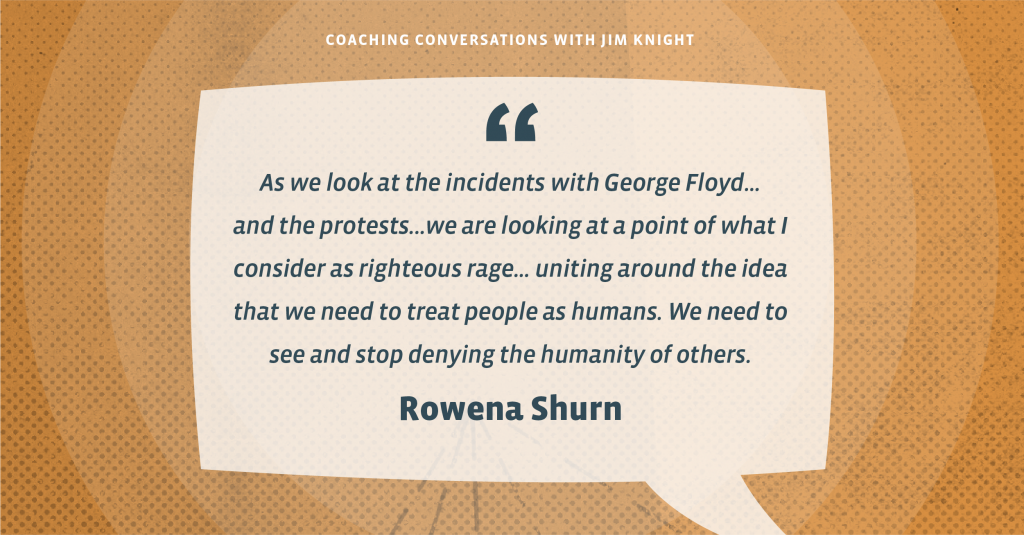
Righteous rage – The culmination of years of violence, trauma, and discrimination that has led to the current movement to unify us all as humans instead of dividing us into opposing groups.
Cognitive dissonance – Holding or embodying opposing beliefs. People say they believe one thing, but their behaviors show something else.
Implicit bias – Our ingrained attitudes toward groups that inform how we perceive and interact with others. Based in any of our past experiences or surroundings, we are often unaware of our own biases.
Microaggression – Indirect, subtle, and sometimes unintentional discrimination against members of a marginalized group. (Mansplaining, singling-out, “these kids don’t/can’t…,” etc.) Our ability to respond and call out these behaviors requires being prepared for it to happen as well as having the courage to speak up.
Privilege – Some people have an advantage simply because of who they are. Structures of privilege lead to oppression because when someone has an advantage, someone else is left out. Privilege creates a lens that can prevent the privileged from seeing the realities of others.
Structural racism – Embedded structures that prevent marginalized people from access to what the privileged take for granted – perpetuated by our institutions. Enforced through actual rules or long-established behavioral norms, this is the umbrella under which all of these terms rest.
Cultural competency – A willingness to learn about and values cultures other than one’s own. (NOT an expertise on all or any specific cultures.)
A Culturally Responsive Classroom – Rooted in the idea of cultural competency, teachers and leaders do not attempt to ignore or erase students’ unique cultural identities. Instead, students are encouraged to come with their full authenticity and are accepted and valued. This includes cultures within cultures. (No group of people are a monolith). Values the humanity of the individual.
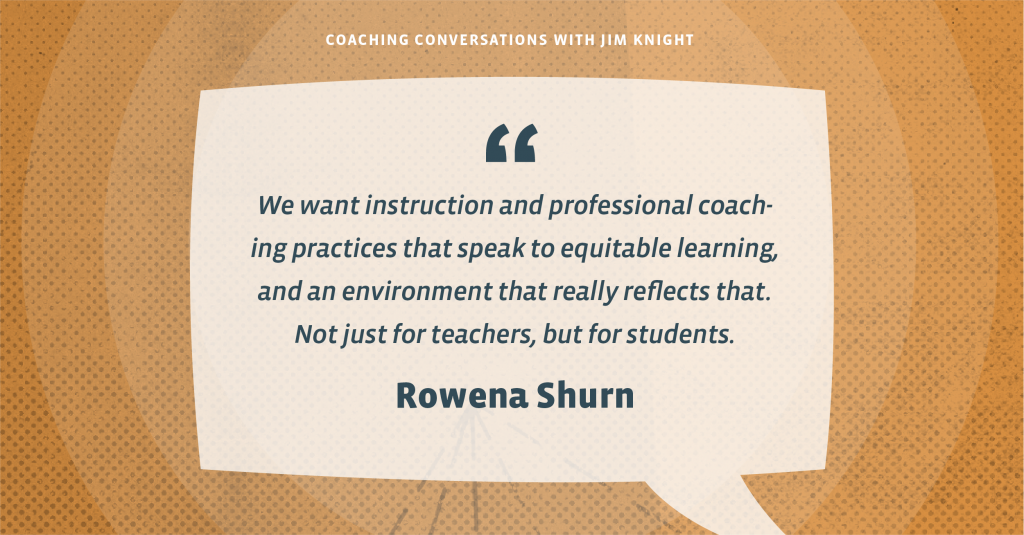
There are powerful ways that coaches can address these issues head-on, whether it is specifically watching classroom video for instances of microaggressions or working to discover a teacher’s implicit biases or even simply encouraging everyone in a learning environment to discuss these topics without judgment or fear. As educators, this work is critical because as Andrea Robinson-Tejada pointed out during our conversation, these are not forward-thinking ideas, “this is a need right now.“
NEA is partnering with their state affiliates to create cohorts for the following courses this spring:
- Coaching for Self-Understanding and Connection
- Coaching for Equity: Understanding How Bias Affects Education
- Coaching for Socially Just Relationships
- Allocating Leaders for Leading Equity in Neighborhoods and Schools
- Coaching to Cultivate Socially Just Learning Environments (two parts)
Enjoy the full interview between Jim, Rowena Shurn, Andrea Robinson-Tejada, Sandie Skordalos, and Senetria Blocker below:
What terms would you add to this glossary? Let us know in the comments section below.






